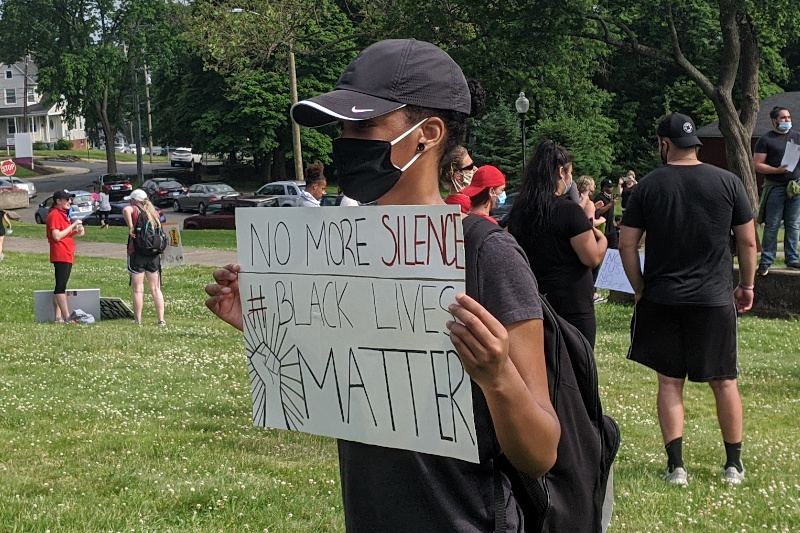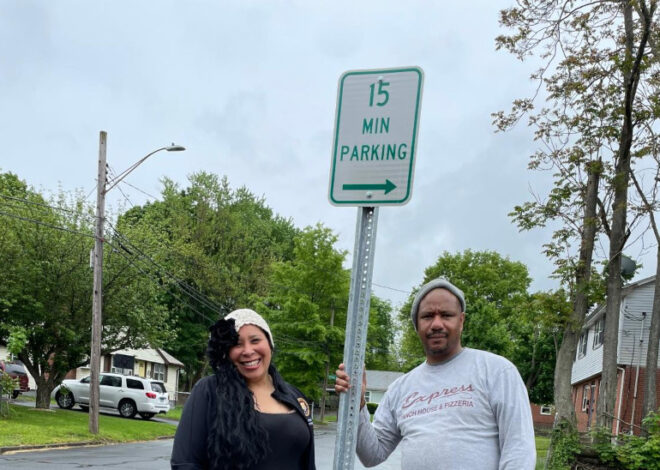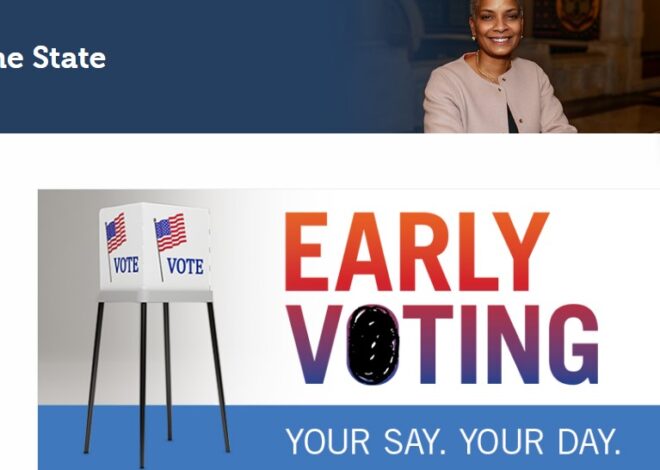New Britain has joined four other cities and towns in declaring that racism is a public health crisis, with a resolution approved by the City Council.

The organization Health Equity Solutions has been calling on local leaders to approve resolutions similar to the one approved by the New Britain Council.
“It is time that we address the pervasive, physical impacts of racism,” said Tekisha Dwan Everette, Executive Director of Health Equity Solutions. “Connecticut is often ranked as one of the healthiest states in the nation and at the same has some of the starkest inequities – health, education, and wealth – rooted in the historic and current context of structural and institutional racism.”
Ald. Colin I. Osborn (D-2) noted that,
We see how racism is the foundation of many policies that have been created which prohibit people of color from receiving adequate health care, obtaining employment, receiving a quality education and fairness and due process in the judicial and policing systems. We are now in a time where we can no longer deny reality and have to now not only tell the truth but accept the truth about racism. Racism is indeed a public health emergency. All lives can not matter when the lives of marginalized and minority groups don’t.
“I’m a 40-something Black woman raising two Black children here in New Britain,” says local community leader Veronica DeLandro. “Yes our city is diverse, and yes we have an eclectic group of racial and ethnic communities that make up a majority of the population but that doesn’t negate the fact that racism is alive and well in Connecticut and in New Britain. Racism is embedded in every facet of our lives. From education, to health, to housing, to public safety, to hiring practices, all the way down to how we vote.”
DeLandro went on to say that,
The emotional, psychological, mental and physical stress of being Black and brown in America has taken a toll as we continue to keep fighting the same fight. We’re tired, I’m tired. It’s time for systems and infrastructures to change, time to break down barriers and it’s time for people, all people to speak up and speak out against racism. 20, 30, 50 years from now, my children shouldn’t be going to a march yelling #BlackLivesMatter. Our country, our state and our city can be the change we wish to see with action and not symbols.
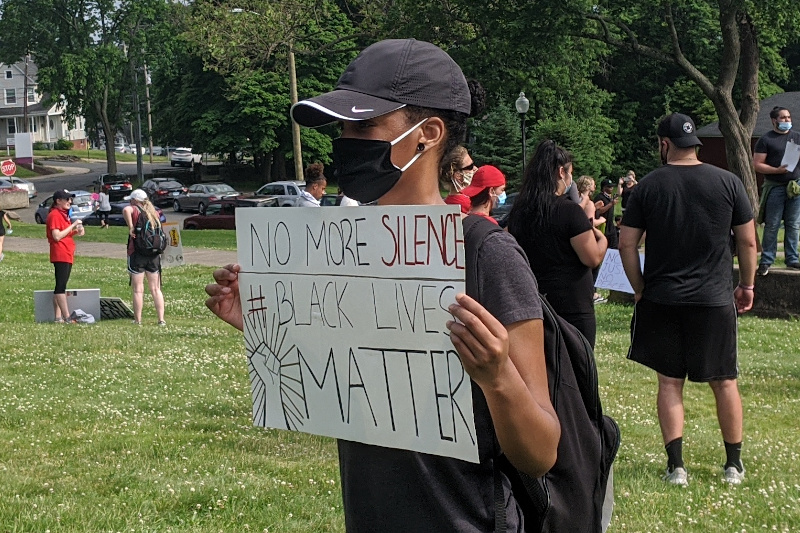
“Racism,” Ald. Osborn said, “is a systemic oppression upon a group of people. In other words, there is a prolonged, cruel and unjust treatment of a group of people because of the color of their skin or for their ethnicity which institutes an abusive level of control as witnessed by the health and income disparities in our communities.”
The resolution, proposed by fourteen Council members and approved 15 – 0, declares, “that racism is a public health crisis affecting our city and all of Connecticut.” The resolution commits the city to a series of goals for dismantling systemic racism and to, “work to progress as an equity and justice-oriented organization.”
Among the things that the resolution commits the city to is,
- “continuing to identify specific activities to enhance diversity and to ensure antiracism principles across our leadership, staffing and contracting,”
- “promote equity through all policies approved by the Common Council,”
- “enhance educational efforts aimed at understanding, addressing and dismantling racism and how it affects the delivery of human and social services, economic development and public safety,”
- “improve the quality of the data our city collects and analyzes by using qualitative and quantitative data to assess inequities in impact and to enable continuously improvement,”
- “advocate locally for relevant policies that improve health in communities of color, and support local, state, regional, and federal initiatives that advance efforts to dismantle systemic racism,”
- “solidify alliances and partnerships with other organizations that are confronting racism and encourage other local, state, regional, and national entities to recognize racism as a public health crisis,”
- “support community efforts to amplify issues of racism and engage actively and authentically with communities of color wherever they live,” and
- “identify clear goals and objectives, including periodic reports to the Common Council, to assess progress and capitalize on opportunities to further advance racial equity.”
Health Equity Solutions says that the local Councils in Windsor, Hartford, Bloomfield and West Hartford approved similar resolutions, noting that, “The protests across all fifty states prompted by the death of George Floyd and the related history of police violence against people of color and the persistent racial health disparities highlighted by the COVID-19 pandemic have moved cities and counties across the U.S. to make similar declarations.”
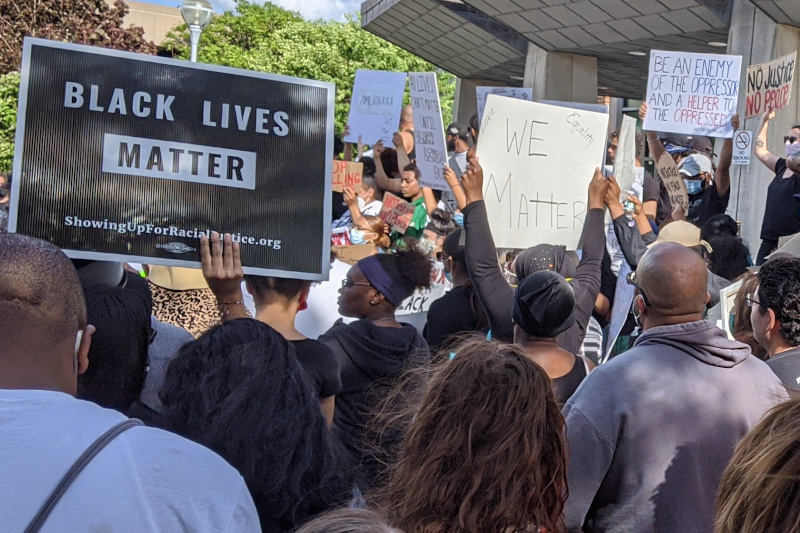
“Acknowledging racism as a public health issue gives us the starting point for action toward dismantling racism and improving health,” Everette said. “We are energized by the willingness of local officials to stand up and commit to applying an equity lens to their work.”
Health Equity Solutions says that it, “is a nonprofit organization with a statewide focus on promoting policies, programs, and practices that result in equitable health care access, delivery, and outcomes for all people in Connecticut.”

